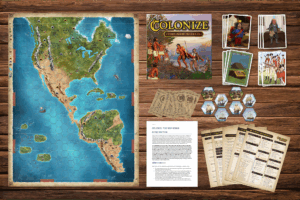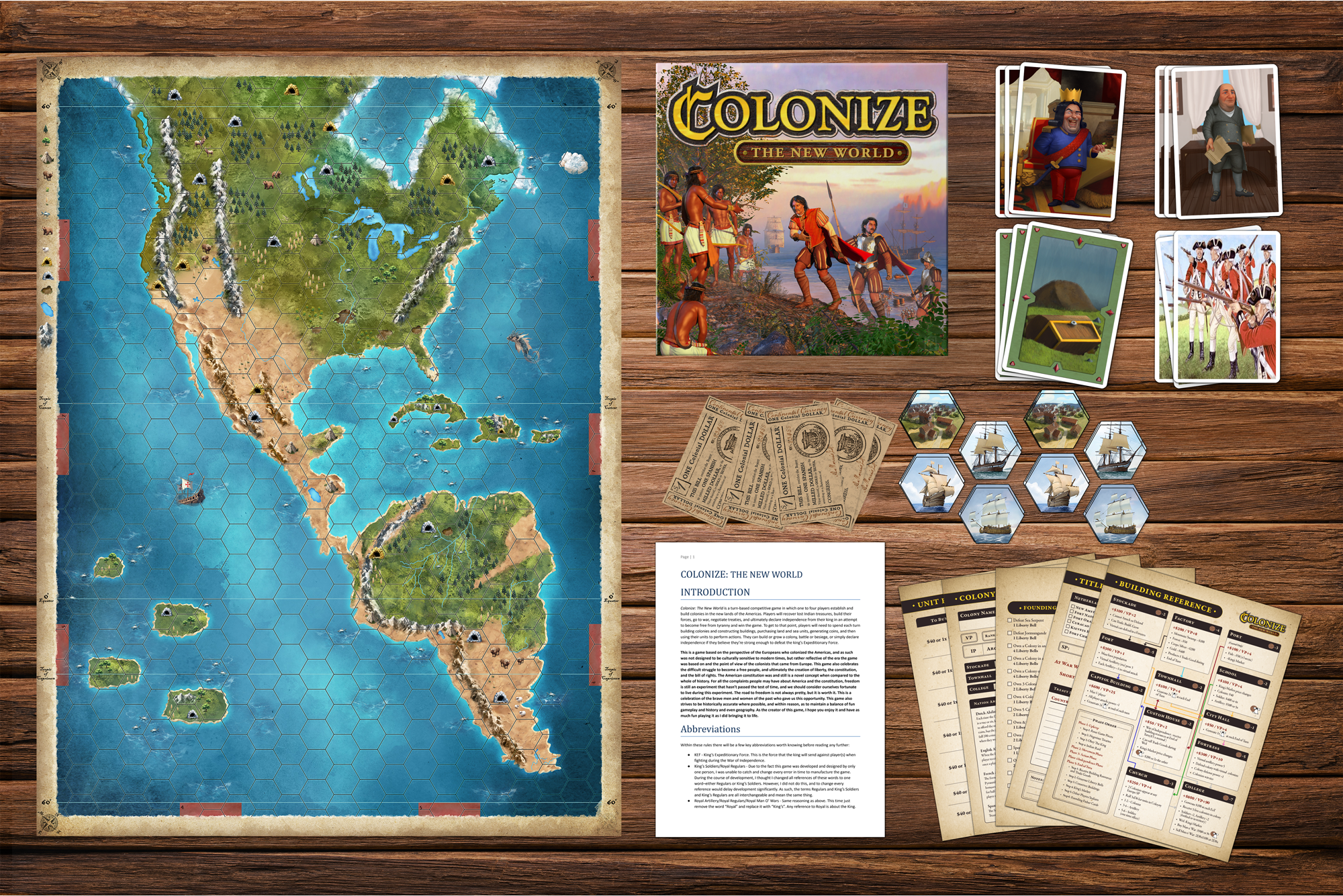
Welcome to another exciting newsletter update, and thank you for your continued interested in our game! Today we are going to answer some questions that have been sent in.
———————————————————————————————————————————————————————-
Where is your game at in the development cycle?
The game is more or less done. The only remaining work that needs to be done is to turn the rulebook into an actual game manual, a couple of pieces of artwork need to be redone, and maybe a touch up here or there. The game is basically finished. If the Kickstarter campaign is successful the only thing that will slow down shipping besides manufacturing is doing these finishing touches.
Will there be an online game version of it?
This has been asked by a few people, including those I play tested the game with. Suggestions have been made to make this on Tabletop Simulator and other avenues. I am open to that idea, but as a solo developer who was working full time, I cannot always do everything I want to. After the Kickstarter campaign, I will look into this idea more. So currently, no online version, but I am willing to work on it after the Kickstarter campaign.
How much will the game cost?
$100 for the standard edition, and the freedom edition available during the Kickstarter will be $150. These prices could change between now and the Kickstarter, but currently that is the goal.
I really love these kinds of games. When does it come out?
It’s great to hear you love these kinds of games! June 1st is the start of our Kickstarter.
How would you compare your board game to another board game? What’s the play style?
I’ll answer it in two parts, first a shorter answer from the man who really helped me playtest the game a lot:
It’s similar to a Civ game or even Twilight Imperium. The difference is the revolution mechanics where you fight your king in a revolutionary war of independence, and the player treaties. That would be a simplified version of things.
Now a longer answer I just posted on Facebook to someone else asking something similar:
The game has some unique stuff to it. The map you see is a digitized version of a hand drawn map of the Americas which in and of itself is unique. This was painstakingly drawn by my mother over many months with my input in a collaboration.
The end game goal is to defeat your king via a revolutionary war. This is definitely a unique aspect to the game. It was quite the challenge to design a non-playable character as the end game boss. This took a lot of time to balance, a wild combination of math, and testing scenarios. This is also where a lot of the battle mechanics in the game were balanced.
There is also the treaty system which is unique. Treaties can be mostly anything you want, but there can be penalties for breaking them. You can also make treaties with the natives to either trade or have them attack other players. The natives are also non-playable characters.
You do all this while building your colonies and managing the resources earned from the colonies. In effect, I do not think there is a board game like this on the market.
And one last unique aspect to the game, during our playtesting, no two games ever played the same. So this ensures there are plenty of different strategies you can employ to try to win and you can play it many different times and have it feel like a different experience each time.
” I’m curious to see how you set the game play for this and the options for character selection.”
The game has four playable countries each with unique abilities: Copying and pasting from the rulebook:
Dutch Abilities
Each time the Dutch player buys during Phase 5.
Step 4 (King’s Market, from the king or a colony): He rolls a d6. If the die result is a one or six, he pays half price. If paying in liberty bells and/or building resources, payment is a minimum of one. Players must be able to afford the normal cost of the unit to use this ability, as the player has already committed to purchasing the unit. If the unit costs 200 coins, but the player only has 100 coins, the player cannot use this ability for the chance to buy the unit at 100 coins. They must have the full 200 coins in case the ability fails.
Each time the Dutch player sells during Phase 5:
Step 4 (King’s Market): The player rolls a d8 when they would normally roll a d6.
This represents the strength of the Dutch economy, as well as Dutch achievements in shipping, commerce, and banking.
English Abilities
When the English build a church, they receive three free colonists ready to be picked up at an SP. During the War of Independence, the player no longer receives this bonus.
Church can be built for two building resources instead of three once a player can normally build one. Players do still receive this bonus during the War of Independence.
These abilities represent the flow of religious immigrants into English colonies.
French Abilities
The French player’s units may gain one power when attacking or defending as long as they are within an adjacent territory of an Indian pyramid, have a level of zero in Indian aggression, and if there are still treasure cards left to be drawn. This is in addition to any other bonuses. Furthermore, if their Indian Aggression Level is zero, they may build a colony on an Indian territory and not receive a penalty for doing so.
When trading (trade as normally would) and receiving coins/liberty bells/building resources with the Indians, a French player receives double the amount of coins/liberty bells/building resources than another player would normally receive if their Indian aggression level is zero. Treaties with the Indians last twice as long as if their Indian Aggression level is zero.
This is to represent the French and Indian fur trade that was prevalent in the Americas, along with the good relations the French had with the Indians in the New World.
Spanish Abilities
The Spanish player’s land units gain one power in battles against Virtual Indian and Virtual Armed Indian units. Upon drawing a treasure card, gain 40 coins.
All Spanish player sea units gain one power throughout the game.
This represents the strategic surprise that Spain achieved over pre-
Columbian American civilizations in addition to the vast wealth the conquistadors acquired from the New World, which would lead to the mighty Spanish armada.
Thank you for reading, that is all for now and as our benevolent king would tell you, you may as always kiss the royal pinky ring swear your loyalty to him as always!

